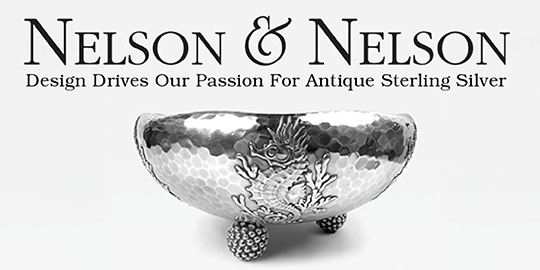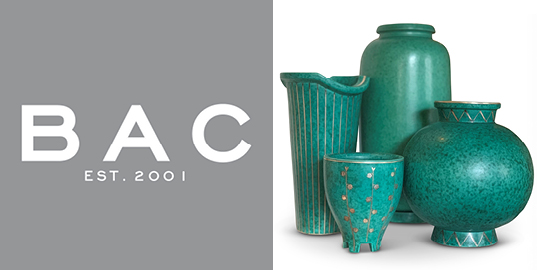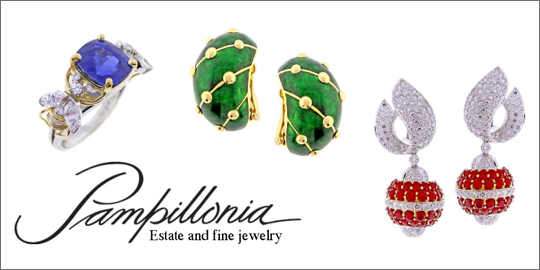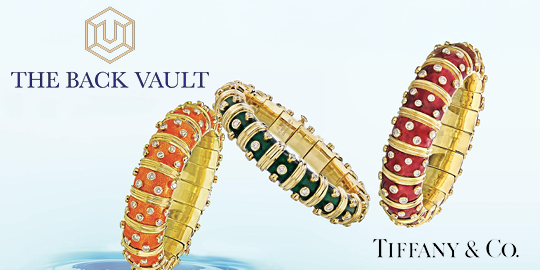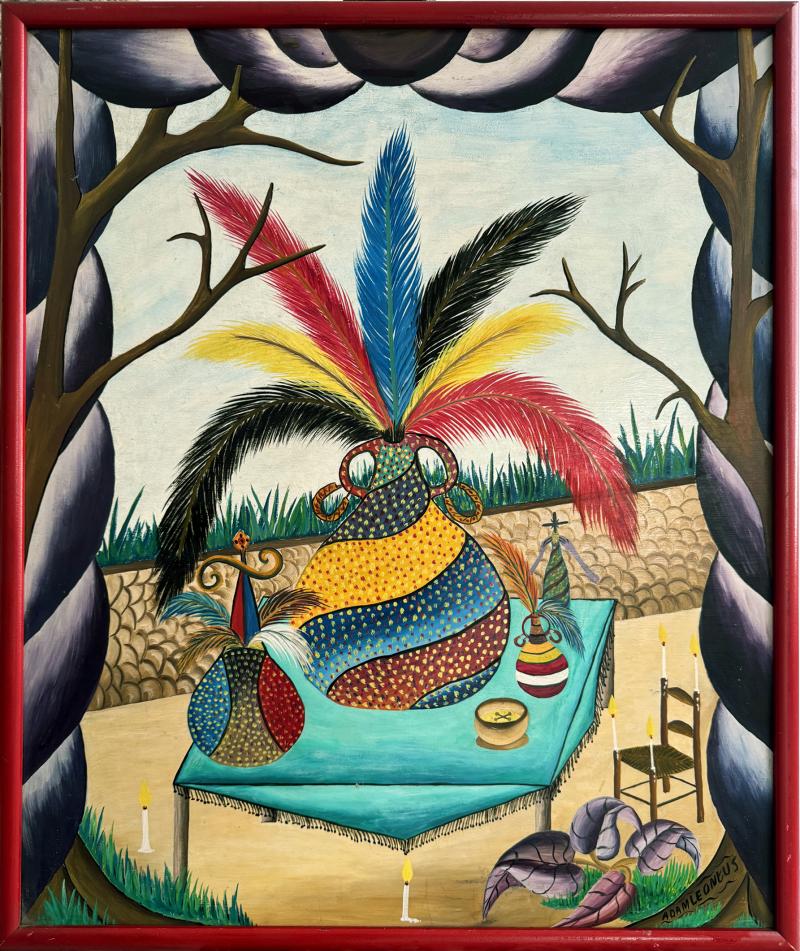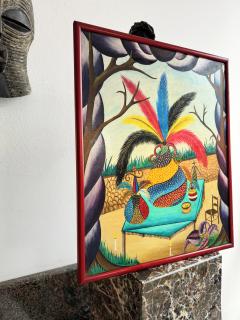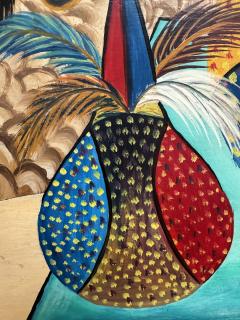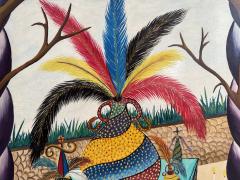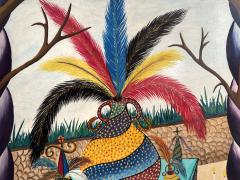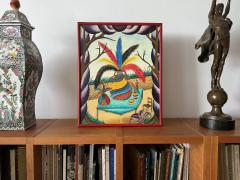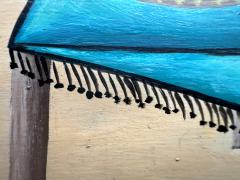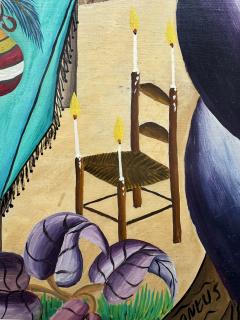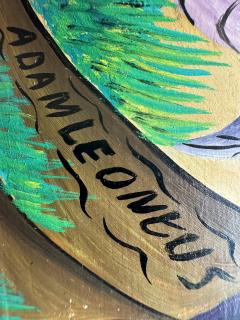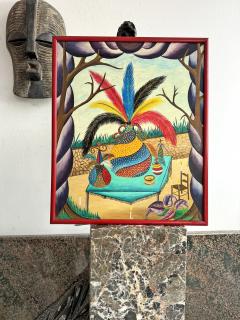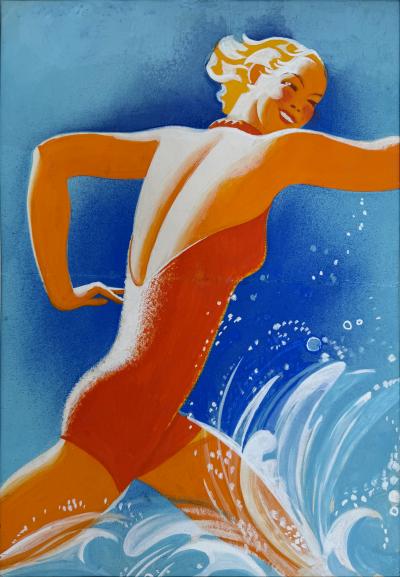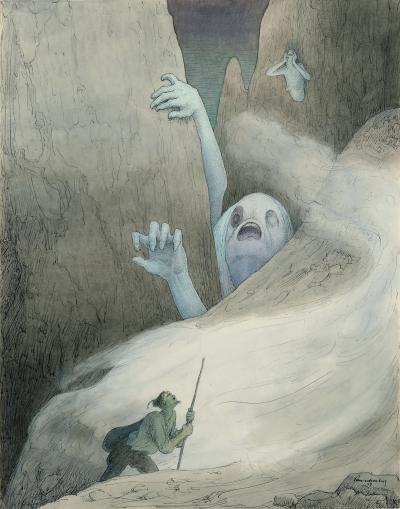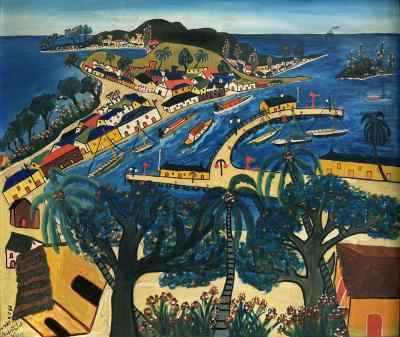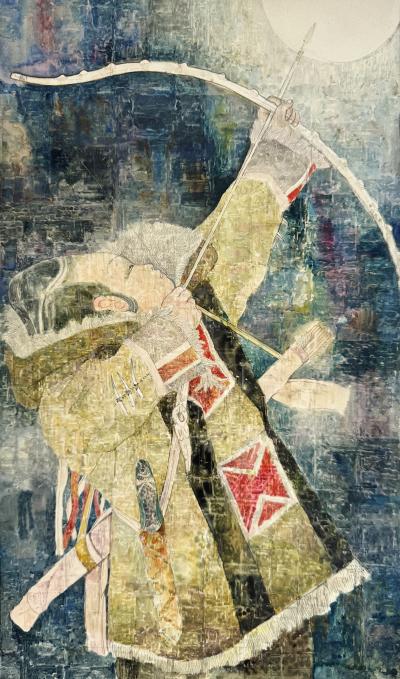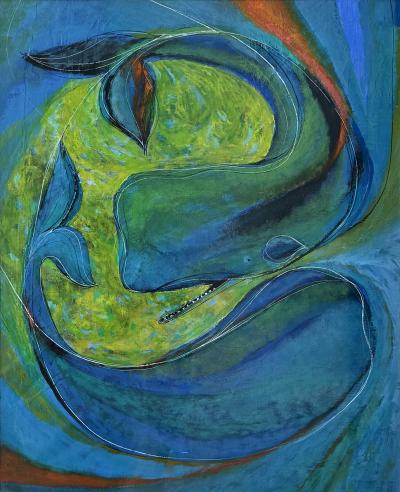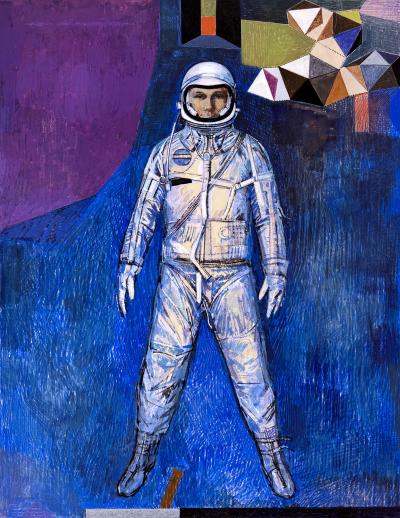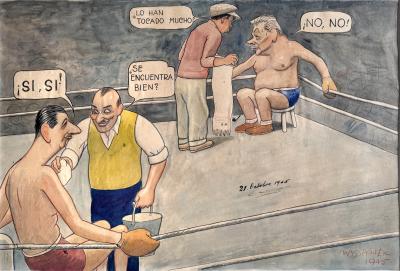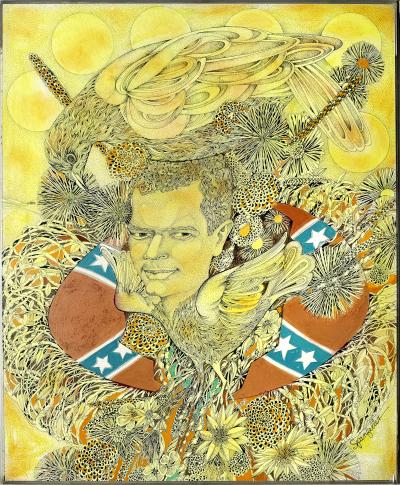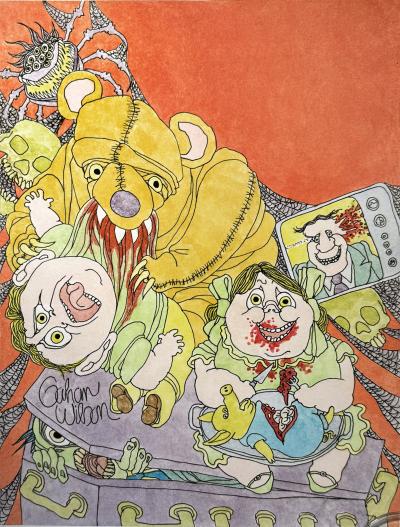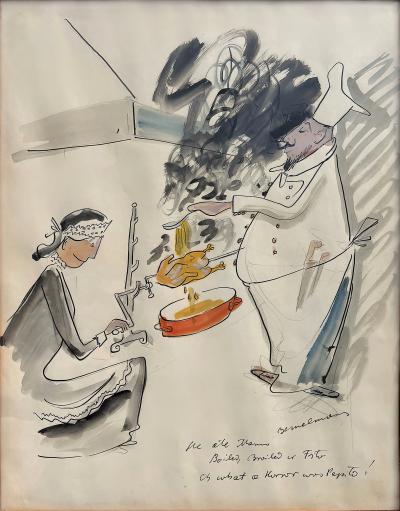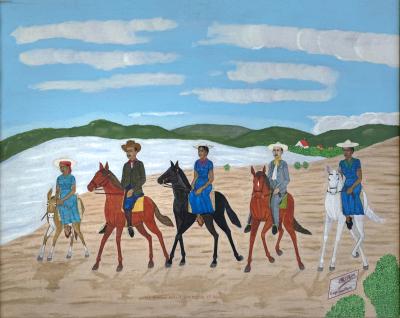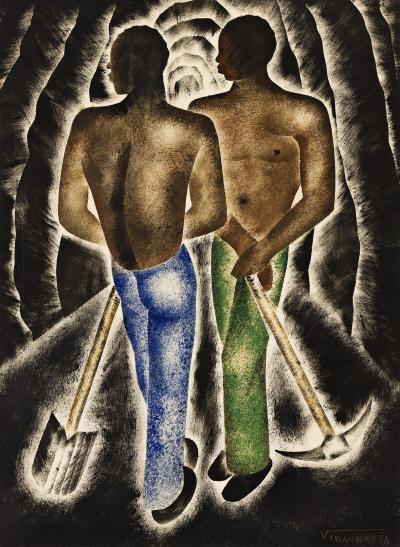Listings / Fine Art / Paintings / Still Life
Voodoo Altar: Feast for the Loa
-
Description
Voodoo Altar: Feast for the Loa
This work represents a convergence of religion, craft, and design, as well as the need for individual artistic expression. It is a visual feast as much as it is a feast for transcendent divine spirits.
Although the artist is a naive artist without formal Western art academy training, it is masterfully conceived and executed. In the center of the composition is an oversized table on which five colorful vessels sit. Three displays a lush, symmetrically arranged floral arrangement in bright colors. Surrounding the table are lit candles. Four of which are on the edges of a chair, which is out of proportion with the other objects. A 'Barley twist', like a purple border on the top and sides, frames the scene, like a stage curtain or a reliquary, protecting the sacred objects from desecration. Bare tree branches flank the center table and intertwine with the floral offering. The image embodies a religious spirit, bursting with Voodoo energy combined with a tour de force display of Haitian visual design.
Signed lower right
Framed in most likely the original artist's frame
Frame size 20 x 16.75
Provenance: Iris Apfel
Haitian Vodou is a religion developed from the blending of multiple African tribal traditions among enslaved people in Haiti. Over time, its practitioners adapted some Roman Catholic traditions and created new ones specific to the Caribbean. Among the core practices of Vodou are healing, ancestral remembrance, and serving the spirits.)
From the National Gallery
Lwa, also called loa, are spirits in the African diasporic religion of Haitian Vodou and Dominican Vudú. They have also been incorporated into some revivalist forms of Louisiana Voodoo. Many of the lwa derive their identities in part from deities venerated in the traditional religions of West Africa, especially those of the Fon and Yoruba.
In Haitian Vodou, the lwa serve as intermediaries between humanity and Bondye, a transcendent creator divinity. Vodouists believe that over a thousand lwa exist, the names of at least 232 of which are recorded. Each lwa has its own personality and is associated with specific colors and objects. Many of them are equated with specific Roman Catholic saints on the basis of similar characteristics or shared symbols. The lwa are divided into different groups, known as nanchon (nations), the most notable of which are the Petwo and the Rada. According to Vodou belief, the lwa communicate with humans through dreams and divination, and in turn are given offerings, including sacrificed animals. Vodou teaches that during ceremonies, the lwa possess specific practitioners, who during the possession are considered the chwal (horse) of the lwa. Through possessing an individual, Vodouists believe, the lwa can communicate with other humans, offering advice, admonishment, or healing.
During the Atlantic slave trade of the 16th to 19th centuries, enslaved West Africans brought their traditional religions with them. In the French colony of Saint-Domingue, which became the republic of Haiti in the early 19th century, the diasporic religion of Vodou emerged amid the mixing of different West African traditional religions and the influence of the French colonists' Roman Catholicism. From at least the 19th century, Haitian migrants took their religion to Louisiana, by that point part of the United States, where they contributed to the formation of Louisiana Voodoo, a religion that largely died out in the early 20th century. In the latter part of that century, Voodoo revivalist groups emerged in Louisiana, often incorporating both the lwa spirits of Haitian Vodou and the oricha spirits of Cuban Santería into their practices. -
More Information
Documentation: Signed Period: 1950-1979 Creation Date: 1950-1970 Styles / Movements: Modernism, Surrealism, Outsider Art Incollect Reference #: 833333 -
Dimensions
W. 16.13 in; H. 19.25 in; W. 40.97 cm; H. 48.9 cm;
Message from Seller:
Robert Funk Fine Art in Miami offers an eclectic collection shaped by 45 years of experience, blending art with commercial perspectives. For inquiries or art advisory services, contact Robert Funk at decoypoet@yahoo.com or 305.857.0521.







